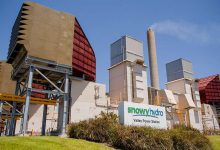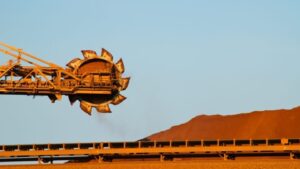The NSW government will fast-track the planning approvals process for Snowy Hydro’s Kurri Kurri gas fired power station, granting ‘Critical State Significant Infrastructure’ status to a project that could be the subject of yet another Morrison government intervention in the electricity market.
The gas-fired power station, which would provide up to 750MW of new generation capacity, has been proposed for construction at the site of the former Kurri Kurri aluminium smelter in the Hunter region of New South Wales, which was decommissioned in 2012 and subsequently demolished.
Plans for the power station have been developed by the federal government owned Snowy Hydro in response to a Morrison government call for new generation capacity in to be built in the Hunter region to replace the Liddell power station, scheduled to close in 2023, and Morrison has threatened to directly intervene in the market by using the government owned Snowy Hydro to build a new gas plant.
Morrison gave the market a deadline of April 2021 to make new commitments to build at least 1,000MW of additional electricity supplies to fill any supply gap left by Liddell’s closure – a gap that market operators have estimated to be as little as 154MW.
Energy market regulators have moved to call on the energy market to fill the forecast supply gap, activating the Retailer Reliability Obligation for the first time on Wednesday, which will see electricity retailers required to enter into contracts to ensure reliable supplies of electricity are maintained when Liddell power station closes in 2023.
NSW planning minister Rob Stokes said that the proposed Kurri Kurri plant had been granted ‘critical’ status, allowing the project to be fast-tracked through the state’s planning processes.
“With another player in the energy market, it increases competition and will help mitigate the closure of Liddell’s coal-fired power station in 2023, putting downward pressure on electricity prices,” Stokes said in a statement issued on Wednesday.
“Gas-fired power stations will have a critical role to play in ensuring our energy security as we transition to a low-carbon emissions economy with renewable energy projects such as wind and solar.
“As well, this project could create jobs for up to 600 construction workers and generate around $800 million worth of investment for the local economy.”
It is currently unclear how the project is to be funded, with expectations that Snowy Hydro’s sole shareholder, the federal government, would provide a capital injection into the company to relieve pressure on already strained finances.
Snowy Hydro reported a substantial fall in profits for the 2019-20 financial year, as the company was forced to write-down the value of a number of hedging contracts, as wholesale electricity prices fell from recent highs.
Ratings agency SP Global issued a credit downgrade for Snowy Hydro in September, citing a fall in wholesale electricity prices that have dented revenues at the same time the company undertakes a significant ramp-up in spending following the start of construction of the Snowy 2.0 project.
The ratings agency said that it expected that Snowy Hydro would need to receive additional support, such as through an injection of new funds from the federal government, before undertaking further expenditure on any new gas fired power stations.
A fall in revenues prices and larger outlays on the Snowy 2.0 project were placing pressures on the company’s balance sheet, and the ratings agency said that it would consider downgrading Snowy Hydro’s credit rating if additional support from the federal government was not forthcoming.
The NSW planning minister said in a statement that the project will still undergo a community consultation process, and will be subject to the same environmental approvals requirements.
The accelerated approvals process will allow Snowy Hydro to commence the preparation of an environmental impact statement for the project, which itself will be released for community consultation.










